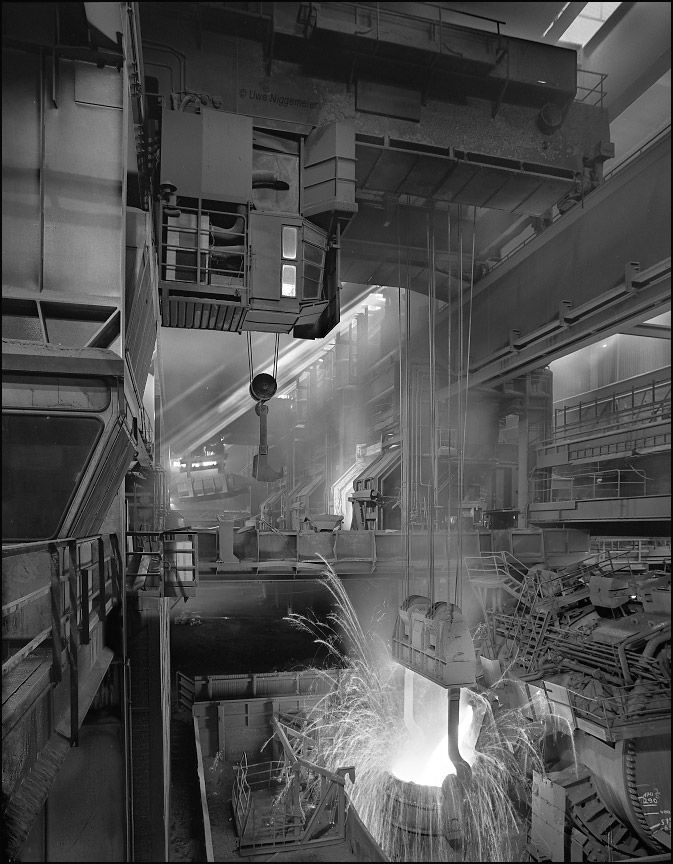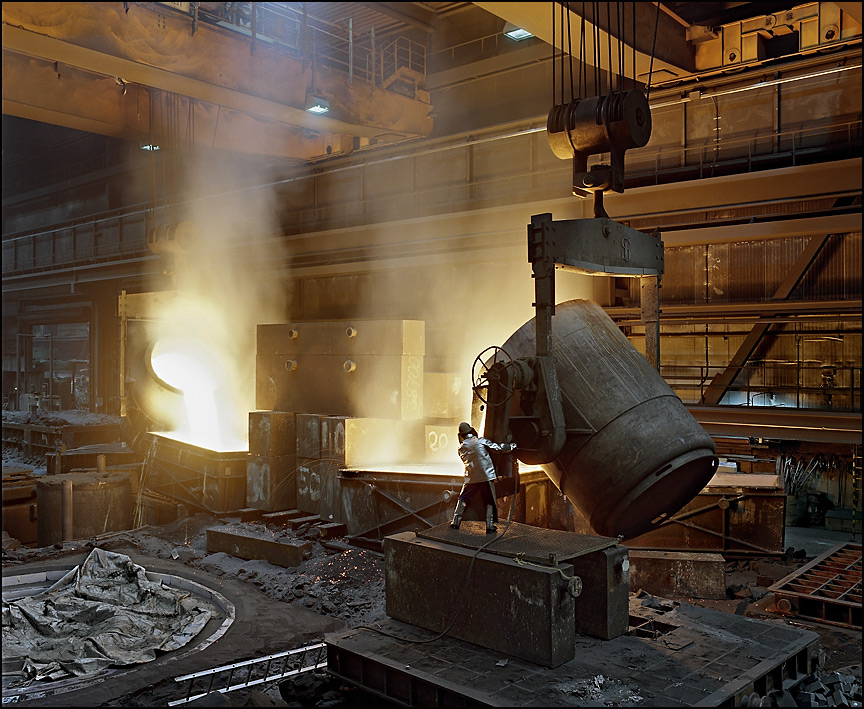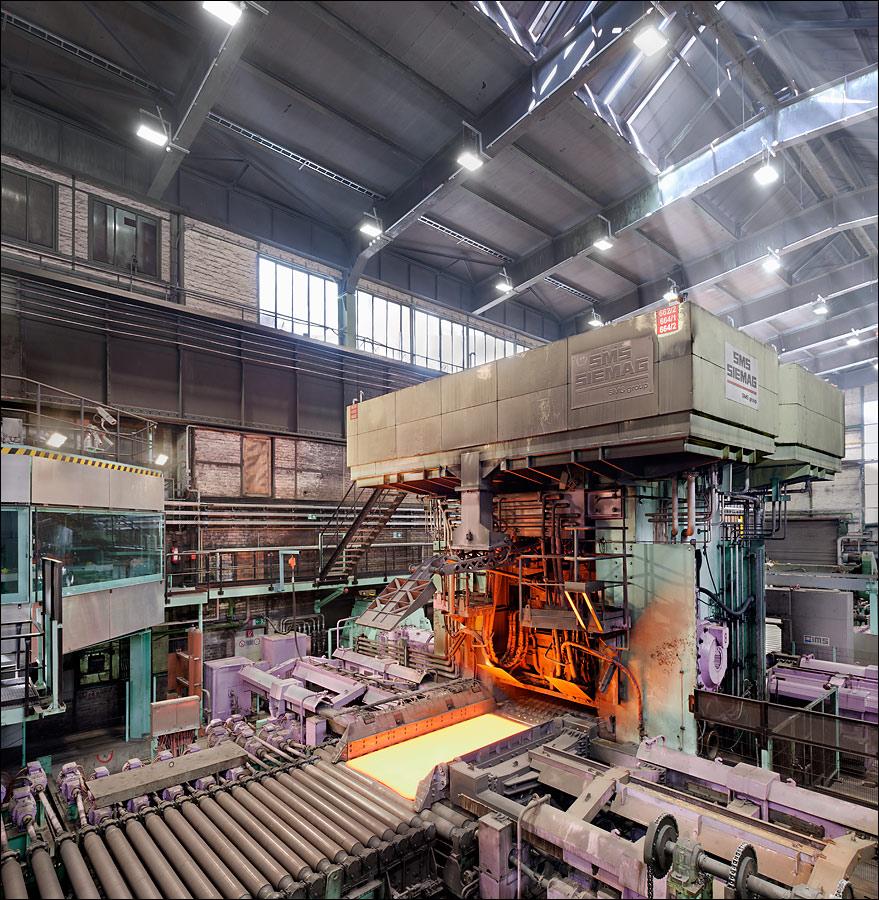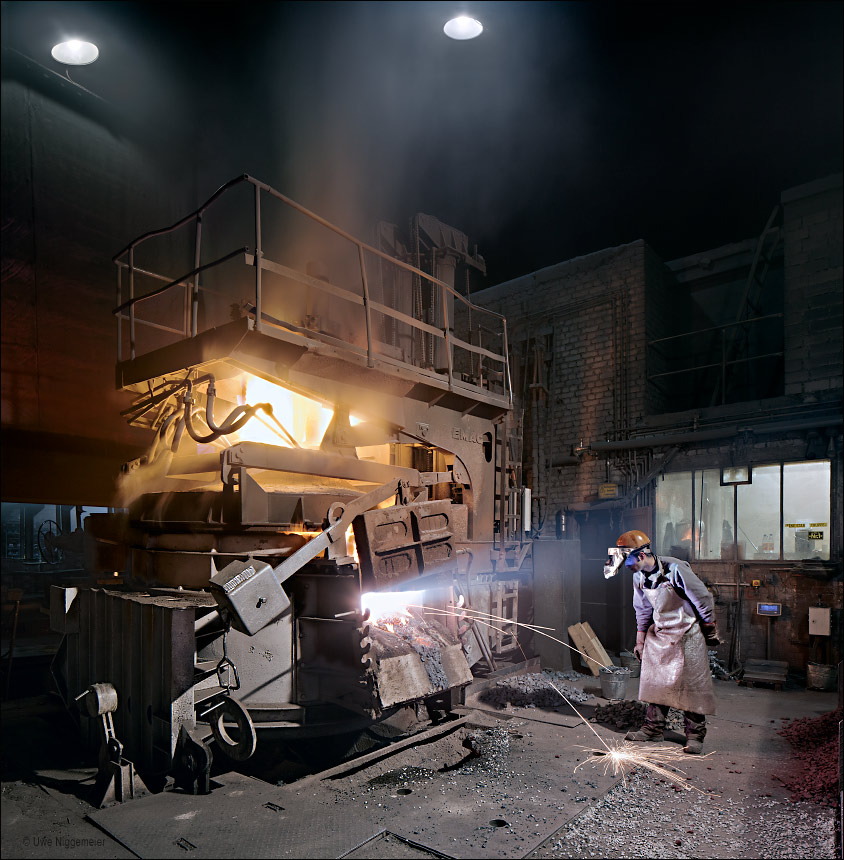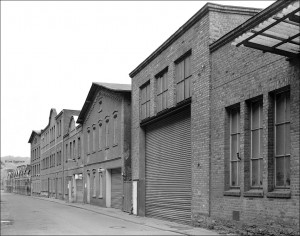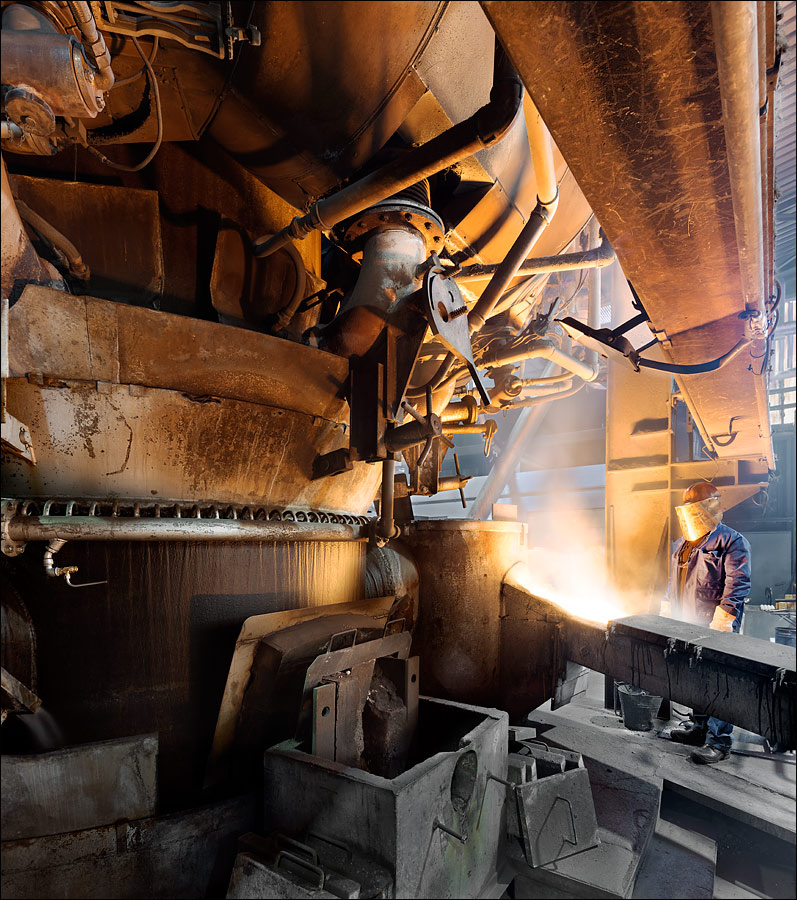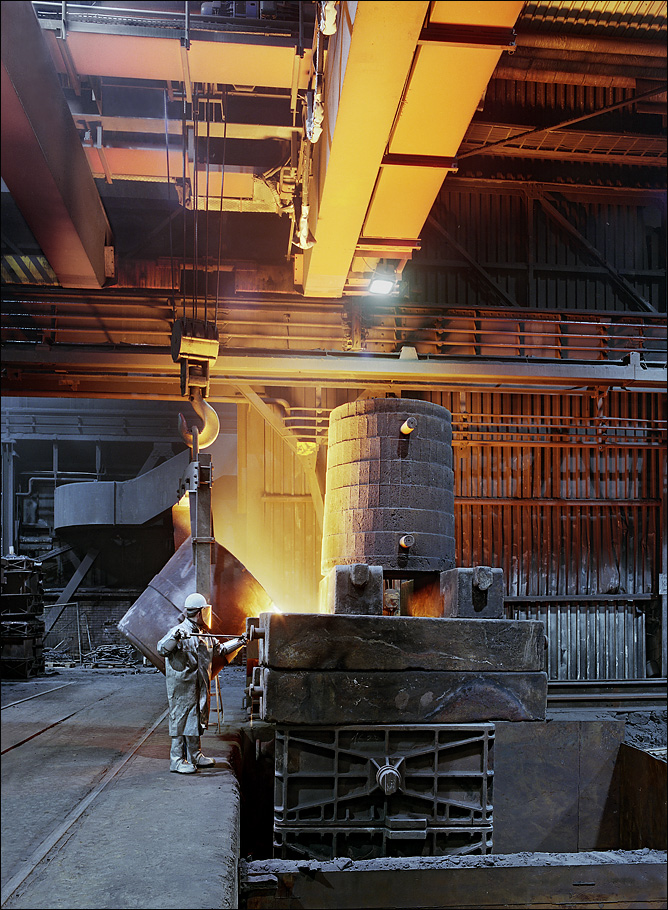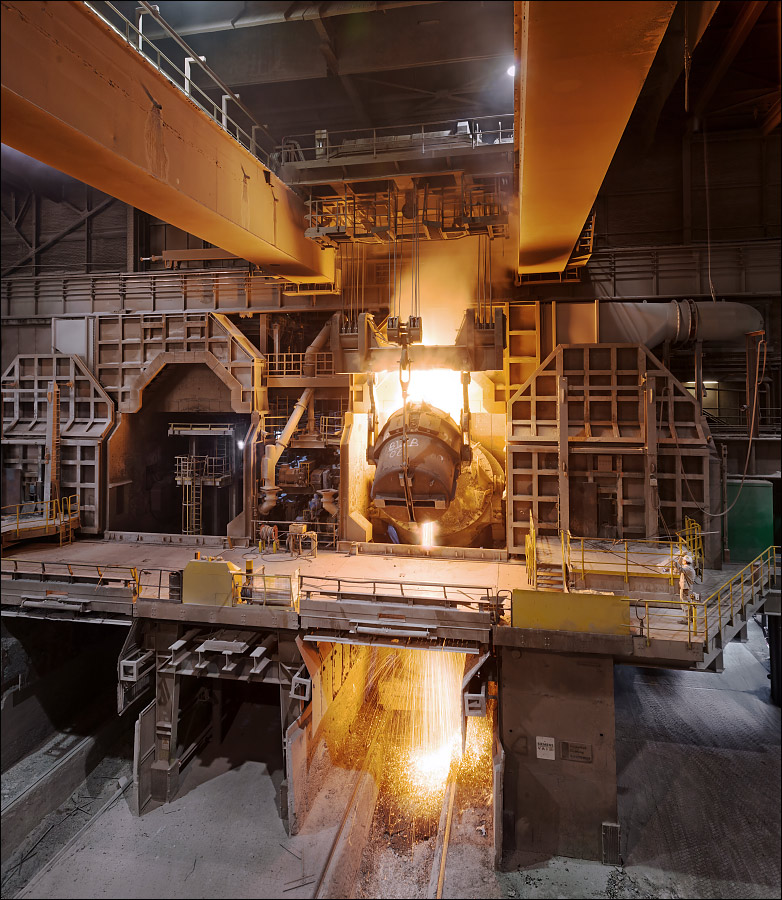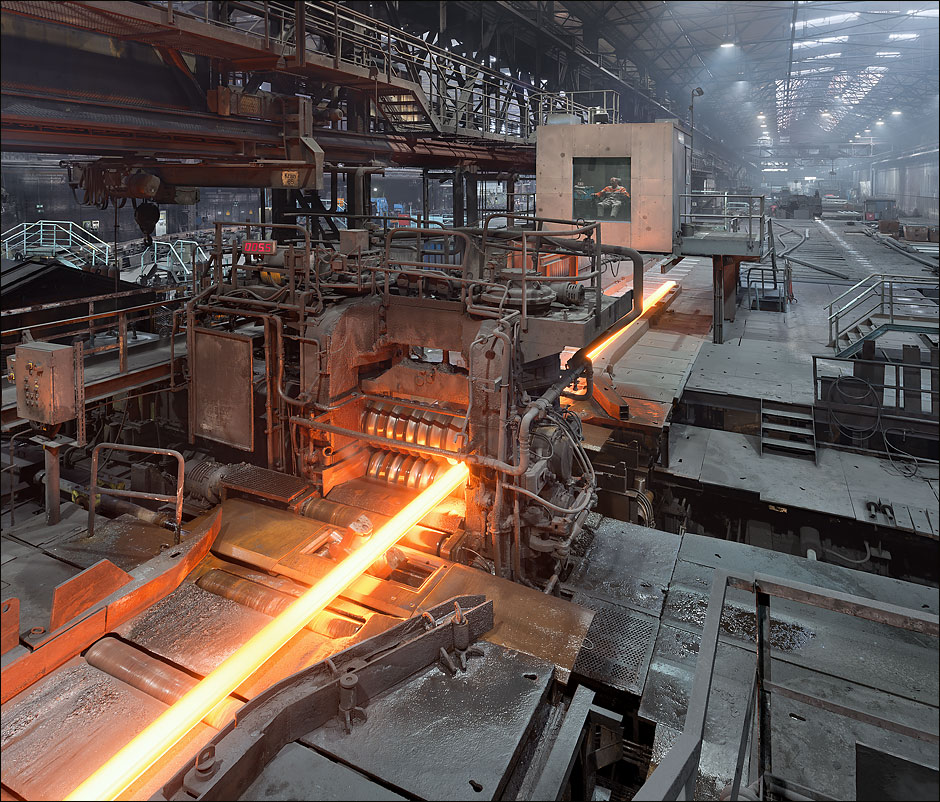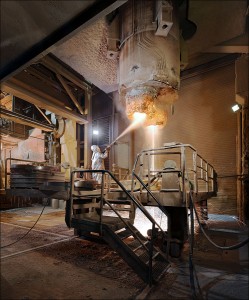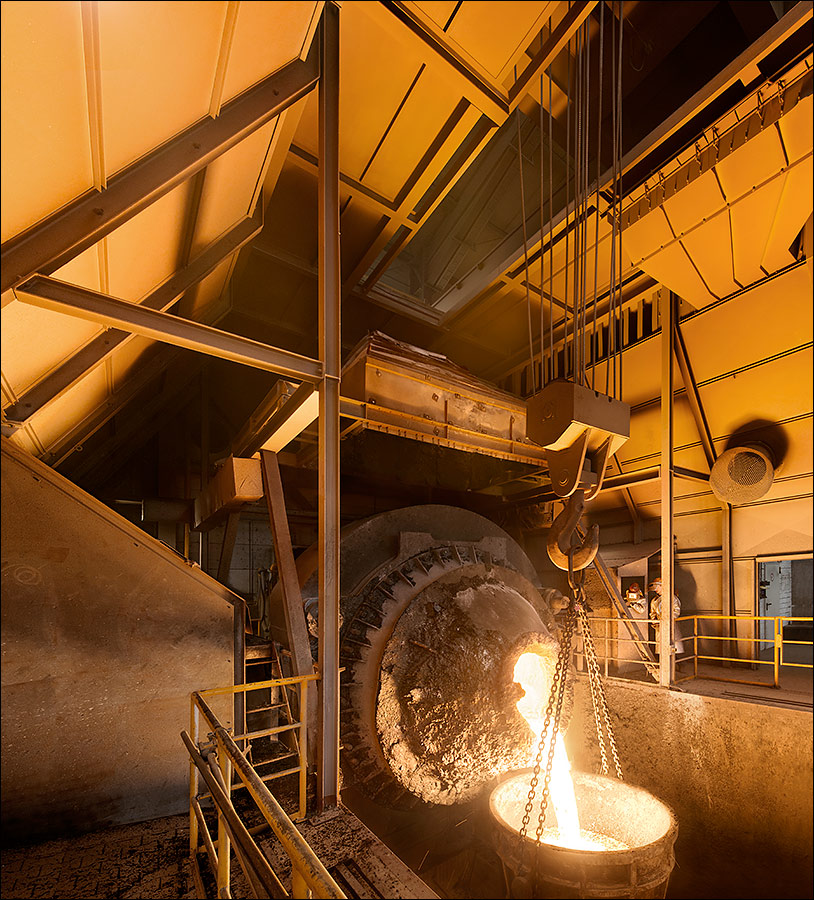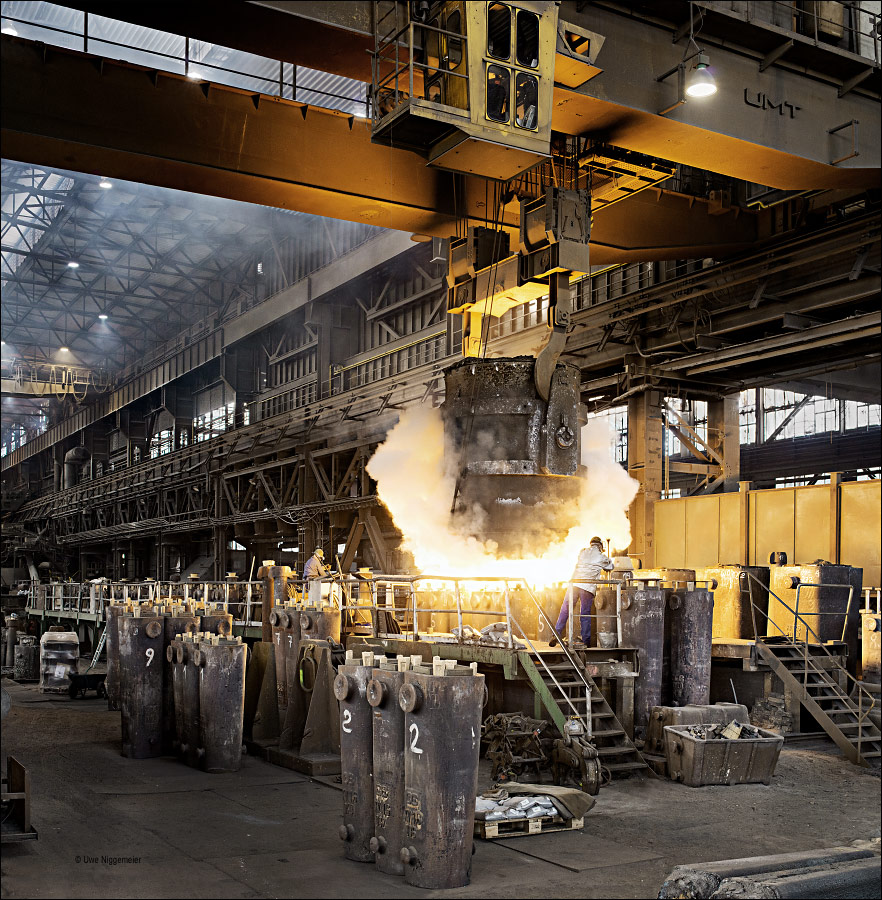
BGH (Boschgotthardshütte) Freital is a speciality steel mill just outside of Dresden, Germany.
It was founded in 1855 under the name Sächsische Gußstahlfabrik benefited by the local iron ore and coal deposits.
After the second world war it was completly dismantled by the Soviets and rebuilt afterwards now called VEB Edelstahlwerk 8. Mai 1945 (date of the German capitulation).
The mill employed more than 5000 people and used to bet he largest speciality steel producer in the former DDR.
After the German reunification in 1990 the work force succesfully fought for the survival of their steel mill and Freital was privatized by the West German entrepreneur Rüdiger Winterhager from Siegen.
Today BGH Freital produces speciality steel in a 42 ton electric arc furnace and a downstream ladle furnace plus a VOD facility for further steel refining.Casting is done in a continuous horizontal caster or by teeming ingots.
The rolling department includes a blooming mill and a bar and wire rolling mill.
The forging division contains a continuous forging machine and a hammer mill.
BGH Freital employes more than 600 people.

